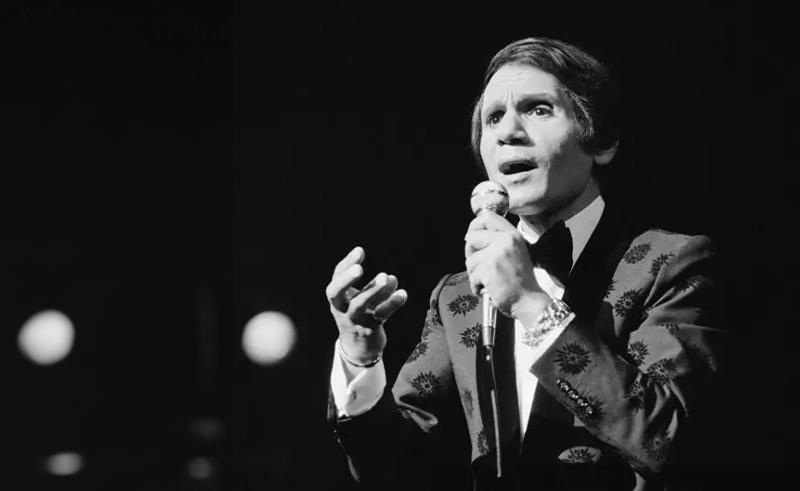One night at the Mohammed V Theater was all it took to blur the line between memory and reality. In Rabat, audiences at the Mawazine Festival were left in awe as Abdelhalim Hafez—more than four decades after his death—returned to the stage in the form of a stunningly lifelike hologram. The concert was not just a performance; it was a poignant spectacle that resurrected a musical legend before the eyes of a mesmerized crowd.
On Monday night, the theater was packed to the rafters. The energy in the room shifted the moment Hafez appeared—his image emerging among the musicians like a vision from the past. As the opening notes of “El Maa’ Wal Khodra,” a tribute to Morocco, floated through the air, a wave of applause surged forward, equal parts joy and disbelief. From that moment, time seemed to stop. The audience was no longer watching a digital projection—they were witnessing a memory come to life.
What made the performance so hauntingly real was the meticulous attention to detail. Every nuance of his movement—the tilt of his head, the graceful sweep of his arms, the subtle glances toward the orchestra—was rendered with uncanny precision. His charisma, undiminished by time or technology, lit up the room as if he’d never left.
As beloved classics like “Bahebek,” “Awel Mara,” “Gana El Hawa,” and “Asmar ya Smarani” echoed through the venue, the crowd sang along instinctively, swept up in an emotional current that felt deeply personal. This wasn’t just nostalgia—it was something more visceral, more immediate. It was as if the concert had cracked open a portal, allowing the past to breathe again.
The hologram didn’t stand alone. A live orchestra accompanied it seamlessly, crafting a flawless interaction between the virtual and the real. The choreography of light, sound, and movement was so precise that it became impossible to separate memory from performance. This wasn’t simply a tribute; it was a resurrection.
Nicknamed the “Dark Nightingale,” Hafez holds a sacred place in Arab musical heritage, and this performance reminded audiences why. His voice, even in digital form, continues to stir emotions, bridging generations and transcending time.
Following last year’s holographic revival of Oum Kalthoum, the Mawazine Festival has doubled down on its bold commitment to fusing cutting-edge technology with cultural remembrance. These aren’t just performances—they’re acts of preservation, turning legacy into experience.
Now in its twentieth edition and held under the High Patronage of King Mohammed VI, Mawazine remains a singular force in world music. From June 20 to 28, the cities of Rabat and Salé will pulse with global rhythms and resurrected voices, as the festival continues to balance innovation with a deep respect for heritage.
